Jewish History

Sarah Shner-Nishmit
Polish author and historian Sarah Shner-Nishmit traveled constantly to evade capture during World War II, working at a labor camp and joining a partisan group. Shner made aliyah in 1947 and subsequently began her writing career, which included children’s books and historical research. She also helped found Kibbutz Lohamei ha-Getta’ot, where she lived until her death.
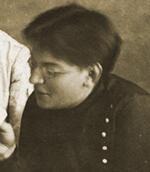
Mania Wilbushewitch Shochat
Zionist and socialist, radical and revolutionary, Mania Shochat left behind her labor activism in Russia to come to Palestine, where she initiated the country's first collective settlement and helped to establish the Jewish defense group Ha-Shomer.
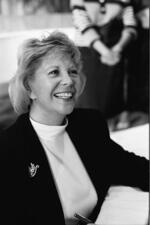
Dinah Shore
Dinah Shore, the quintessential American girl, was both America’s sweetheart in the 1940s and 1950s and a leading example of an independent woman in the 1970s. Her career as a singer and actress spanned over forty years and included stints on the radio and in the movies. Shore won nine Emmys, a Peabody, and a Golden Globe.
Rose Shoshana
Rose Shoshana began her acting career in the Yiddish theater world, playing Manke in Got fun Nekome in 1908. She went on to perform across Europe, America, and Asia. When she arrived in New York in 1946, she began a career as a novelist, writer, translator, and journalist at the Forverts.
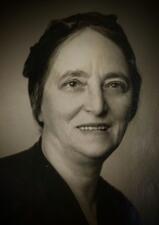
Chana Shpitzer
Lillie Shultz
Lillie Shultz poured her boundless energy into all aspects of her life. She was a journalist, a Zionist, a champion of the oppressed, a skilled administrator, and a businesswoman.
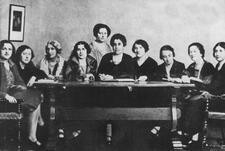
Rebecca Sieff
Rebecca Sieff, the daughter of a wealthy Jewish family from Manchester, England, played an active role in two central social-historical movements: the struggle for women’s rights and the Zionist movement that eventually led to the establishment of the State of Israel.
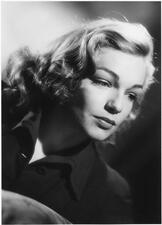
Simone Signoret
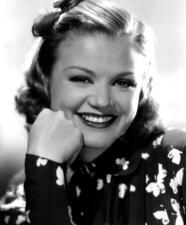
Simone Simon
Simone Simon was a prolific international film star, known for her iconic appearance and voice. Simon spent her childhood in Marseilles and Madagascar and attended schools in Berlin, Budapest, and Turin before making her film debut in 1931. She became popular in France and Hollywood for her mysterious, vulnerable, and seductive acting style, and made over thirty-eight feature films in her career.
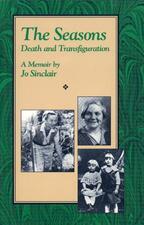
Jo Sinclair
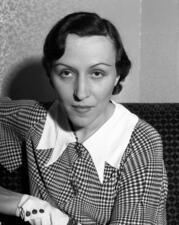
Berta Singerman
Berta Singerman (1901-1998) was an Argentine actress and reciter of poetry, famous throughout the Ibero-American cultural world. Born in Russia to a family of traditional singers (chazanim), she immigrated to Buenos Aires, Argentina, when she was four years old.
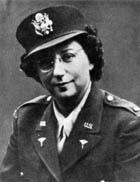
Frances Slanger
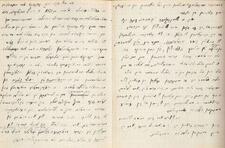
Cecila Slepak
Cecilia Slepak, a journalist and translator, was a member of the Oneg Shabbat group, which was vital in collecting records and interviews about life in the Warsaw Ghetto. She focused in particular on the lives of women in the ghetto as they struggled to survive.
Chava Slucka-Kesten
Chava Slucka-Kesten started teaching in Warsaw before World War II and continued her career through the war in Moscow. After the war she became an author and sustained her political involvement. Writing from the perspective of a politically engaged woman, Slucka-Kesten offers a unique glimpse into pre- and post-war Jewish life in Poland’s cities and villages, as well as into the early years of the State of Israel.
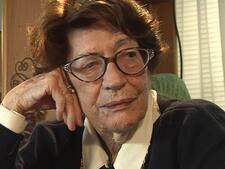
Michal Smoira-Cohn
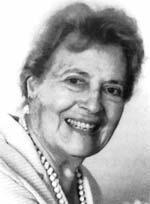
Virginia Snitow
Virginia Levitt Snitow was a multifaceted woman who was a teacher, political activist, pre-Second Wave feminist, poet, writer and founder of US/Israel Women to Women. Ahead of her time in the fight for both civil and women’s rights, Snitow was unafraid to take unpopular stances when fighting for others.
Sociodemography
Over the last several decades, Jewish women attained significant achievement in the socio-economic sphere and played a leading role in maintaining Jewish continuity. In general, Jewish women are educated and participate in the labor force at higher rates than their non-Jewish counterparts.
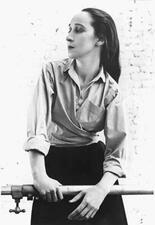
Anna Sokolow
Anna Sokolow (1910-2000), an American dancer and choreographer of Russian-Jewish descent, danced with the early Martha Graham Company and created many international dance-theater works of social and political significance.

Sol Hachuel
Sol Hachuel, or as she is also known Lalla Soulika or Sol ha-tsaddeqet, was a Moroccan Jewish martyr from the first half of the nineteenth century. Hachuel was born in Tangier and beheaded in Fez at the age of sixteen or seventeen. Her story has inspired countless versions among North African Jews and Muslims as well as Europeans, and her tomb remains a prominent pilgrimage site in Morocco.
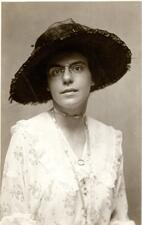
Emily Solis-Cohen
Barbara Miller Solomon
Barbara Miller Solomon was not only an educator but a pioneer in the field of women's history. Named the first female dean of Harvard College in 1970, she laid the groundwork for the formal establishment women’s studies there. Her scholarship on the history of immigration and women's history remains influential today.

Eva Sopher
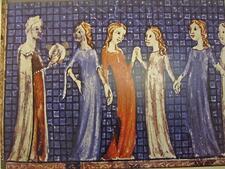
Medieval Spain
Written histories of Jews in medieval Spain rarely include women, so one must seek alternate sources. Marital status was the frequent topic of rabbinic responsa. Some Jewish women made their own income as merchants and moneylenders. Inheritance laws were problematic for Jewish women – disputes were settled in both Jewish and non-Jewish courts.
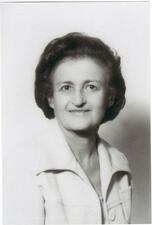
Johanna Spector
Johanna Spector was an influential ethnomusicologist whose writings, recordings, and film projects documented the music of little-studied Jewish communities from around the world. After surviving the Holocaust, Spector earned her doctorate, founded the ethnomusicology department at the Jewish Theological Seminary, established the Society for the Preservation of Samaritan Culture, and served as president of the Asian Music Society.
Dora Spiegel
Dora Spiegel served in many fields, including education, the organization of league sisterhoods, and publications stimulating women’s loyalty to the synagogue and the Jewish home. She helped found the Women’s Institute of Jewish Studies at the Jewish Theological Seminary of America, influencing the lives of countless Jewish women and children.


